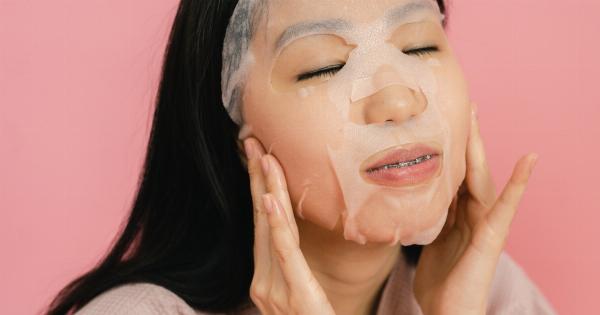Our hair is often considered a reflection of our overall health and well-being. Not only does it enhance our appearance, but it can also reveal valuable insights about our nutrient levels.
The condition, growth rate, and even color of our hair can provide clues about whether we are nourishing our bodies with the necessary vitamins and minerals they need. In this article, we will explore the various ways in which our hair can reflect our nutrient levels, and what we can do to maintain healthy hair through proper nutrition.
Understanding Hair Growth
Before delving into the connection between our hair and nutrient levels, it is important to understand the basics of hair growth.
Hair primarily consists of a protein called keratin, which is produced in the hair follicles located in the dermis layer of the skin. The hair growth cycle consists of three phases: anagen (growth phase), catagen (transition phase), and telogen (resting phase).
Signs of Nutrient Deficiencies in Hair
Our hair acts as a barometer of our internal health, providing subtle indications of nutrient deficiencies. Here are some common signs to watch out for:.
1. Dry and Dull Hair
Dry, brittle, and lackluster hair can signify a deficiency in essential fatty acids, such as omega-3 and omega-6. These fatty acids are vital for maintaining hair health, as they help nourish and moisturize the hair shaft.
Incorporating foods rich in these fatty acids, such as salmon, walnuts, avocados, and flaxseeds, can help combat dryness and restore shine to your hair.
2. Slow Hair Growth
If you notice that your hair is growing at a slower rate than usual, it could be indicative of a nutrient deficiency. Iron, biotin, and zinc are three crucial nutrients required for proper hair growth.
Iron deficiency, in particular, can lead to hair loss and stunted growth. Consuming iron-rich foods like spinach, lentils, red meat, and tofu can boost hair growth and prevent deficiencies.
3. Thinning Hair
Thinning hair is a common concern, especially as we age. However, it can also be a sign of nutrient deficiencies. A lack of protein, vitamins A and C, and zinc can contribute to hair thinning and hair loss.
Including foods like lean meat, eggs, citrus fruits, and nuts in your diet can help fortify your hair and prevent thinning.
4. Premature Graying
While genetics play a significant role in graying hair, premature graying can sometimes be linked to nutrient deficiencies. Deficiencies in vitamins B5, B6, and B12, as well as copper and zinc, can cause premature graying.
Incorporating foods like whole grains, fish, eggs, and dark leafy greens can help maintain the natural pigment of your hair for longer.
5. Hair Loss
Excessive hair shedding or hair loss can be distressing. Nutrient deficiencies, such as a lack of vitamins D, E, and biotin, can contribute to hair loss. Vitamin D, in particular, plays a crucial role in hair follicle cycling and new hair growth.
Increasing your intake of fatty fish, mushrooms, eggs, and fortified dairy products can support hair health and combat hair loss.
Improving Nutrient Levels for Healthy Hair
Now that we understand how our hair can reveal insights about our nutrient levels, let’s explore some steps we can take to improve our hair health through proper nutrition:.
1. Balanced Diet
A well-rounded and balanced diet comprising a variety of nutrient-rich foods is essential for promoting healthy hair. Include a good mix of lean proteins, fruits, vegetables, whole grains, and healthy fats in your daily meals.
This will provide your body with the necessary vitamins, minerals, and antioxidants needed for optimal hair health.
2. Essential Vitamins and Minerals
Incorporating specific vitamins and minerals known to support hair health can be beneficial. Biotin, also known as vitamin B7, is often recommended for improving hair growth and strength.
Foods rich in biotin include eggs, almonds, sweet potatoes, and avocados. Additionally, consuming adequate amounts of iron, zinc, and vitamin D through diet or supplements can help prevent deficiencies that adversely affect hair health.
3. Hydration
Drinking enough water throughout the day is crucial for maintaining hydrated and healthy hair. Dehydration can lead to dryness and brittleness, making your hair prone to damage and breakage.
Aim to drink at least eight glasses of water daily and reduce your intake of dehydrating beverages, such as alcohol and excessive caffeine.
4. Avoid Excessive Heat and Chemicals
Subjecting your hair to excessive heat from styling tools and regular chemical treatments can weaken the hair shaft and contribute to hair damage and breakage.
Minimize the use of heat styling tools, opt for natural hair care products, and limit chemical treatments to maintain the overall health of your hair.
Conclusion
The state of our hair can provide valuable insights into our nutrient levels. Dryness, slow growth, thinning, premature graying, and hair loss can all be indications of nutrient deficiencies.
By adopting a balanced diet, ensuring adequate nutrient intake, staying hydrated, and minimizing exposure to damaging practices, we can nourish our bodies and promote healthier, more vibrant hair. Remember, a holistic approach to overall wellness is key to maintaining luscious locks.






























